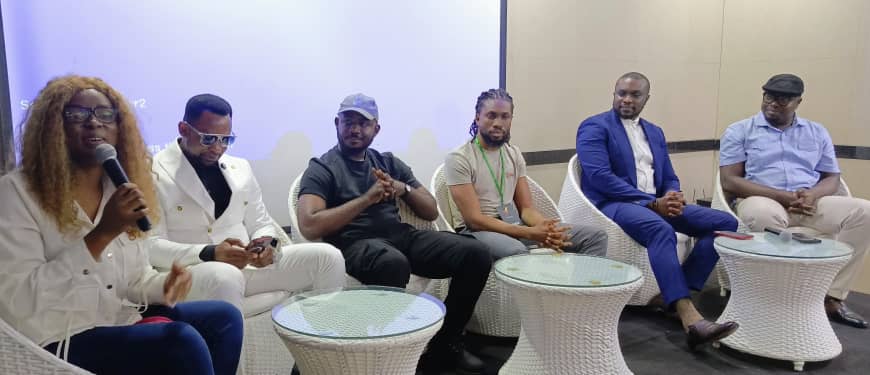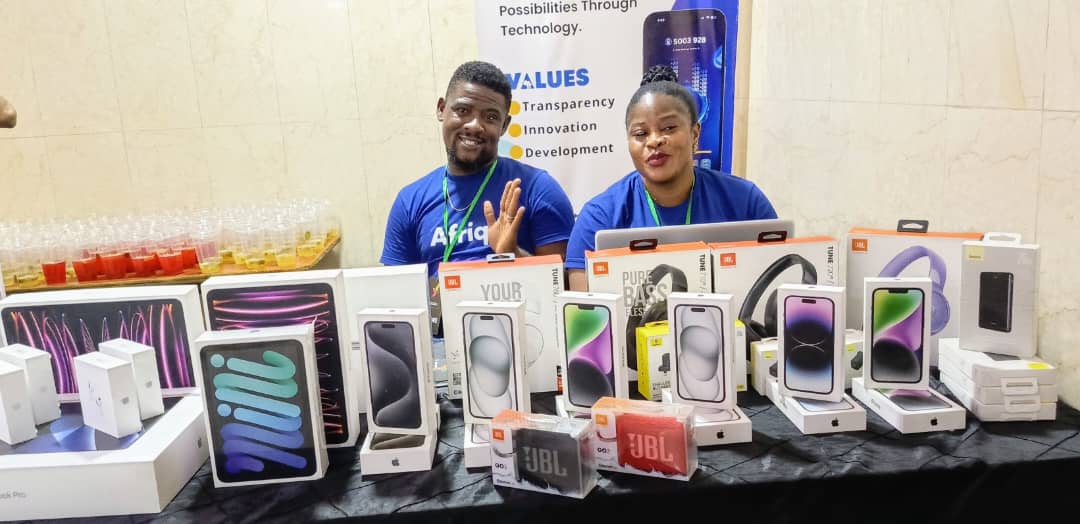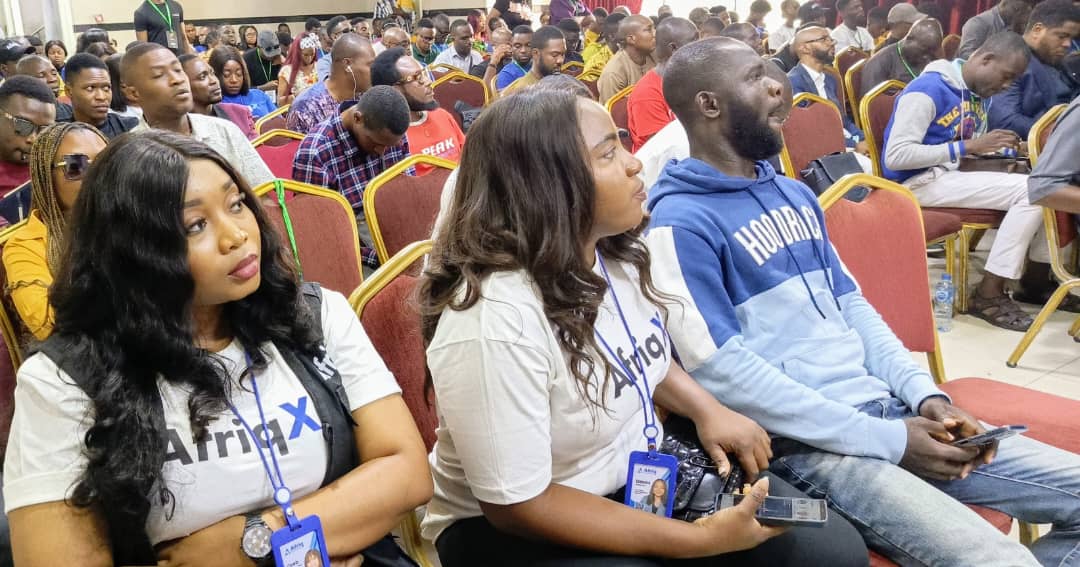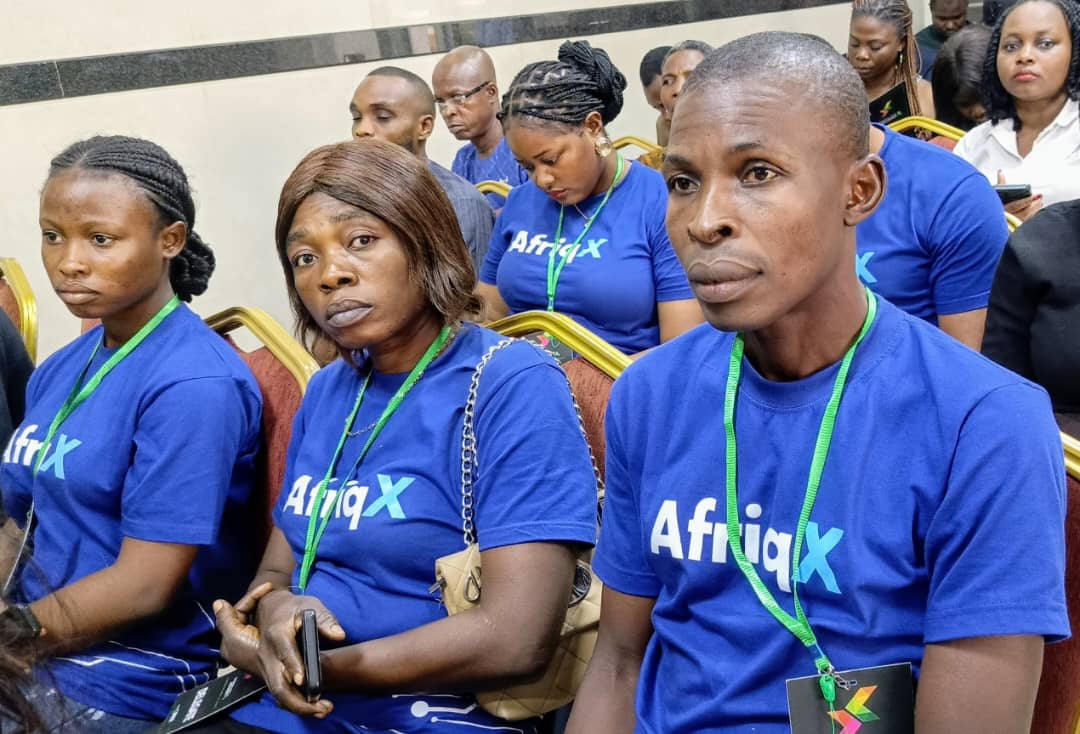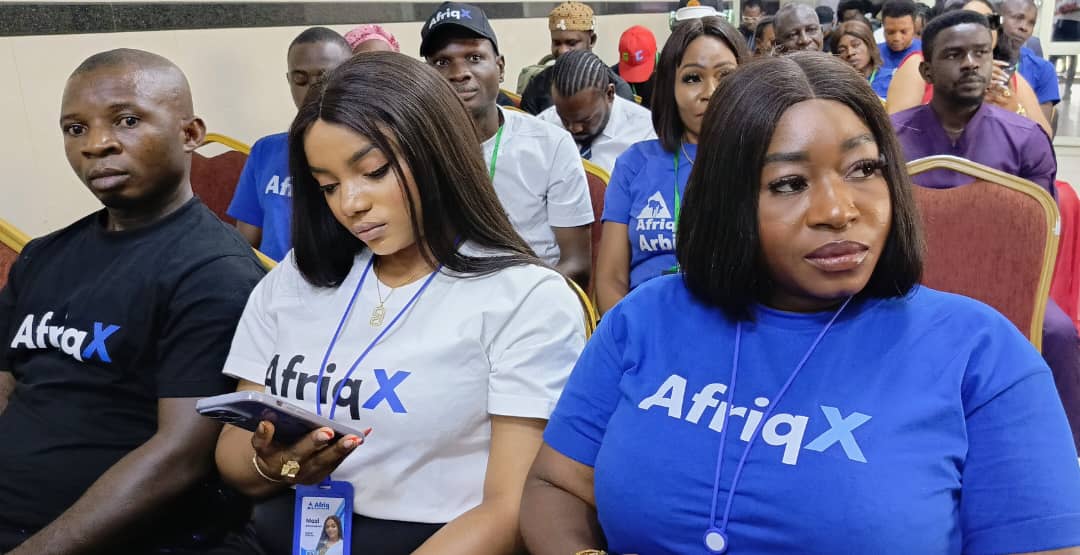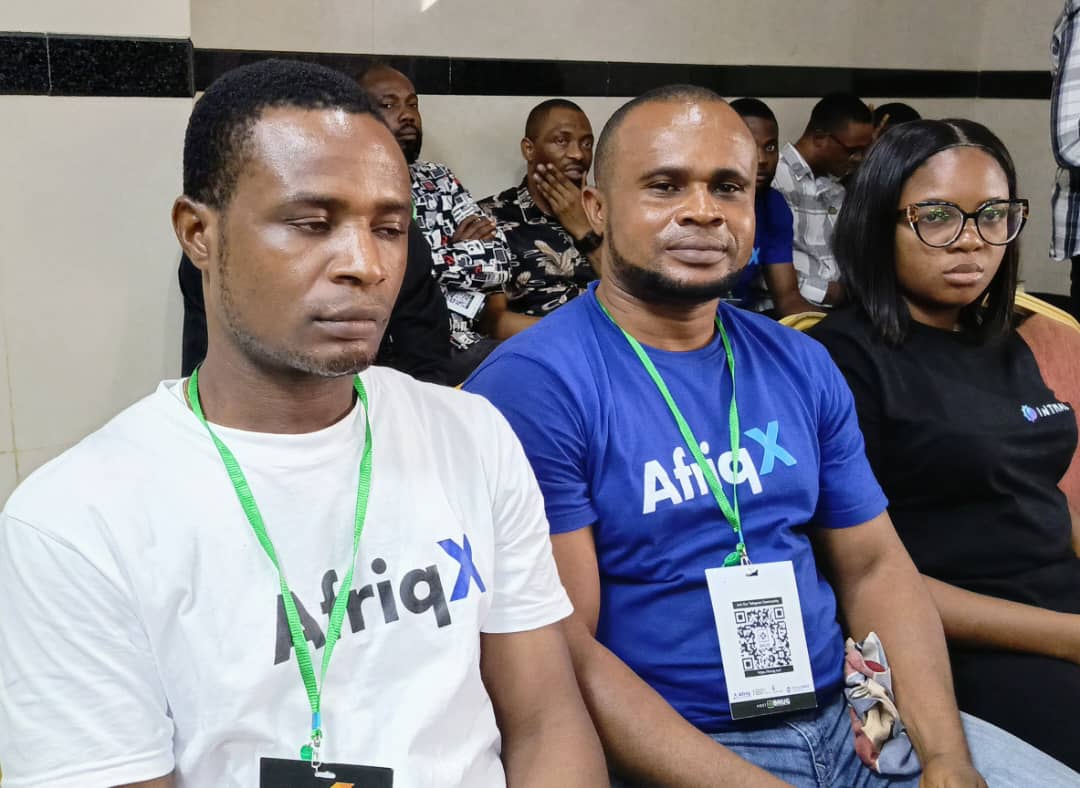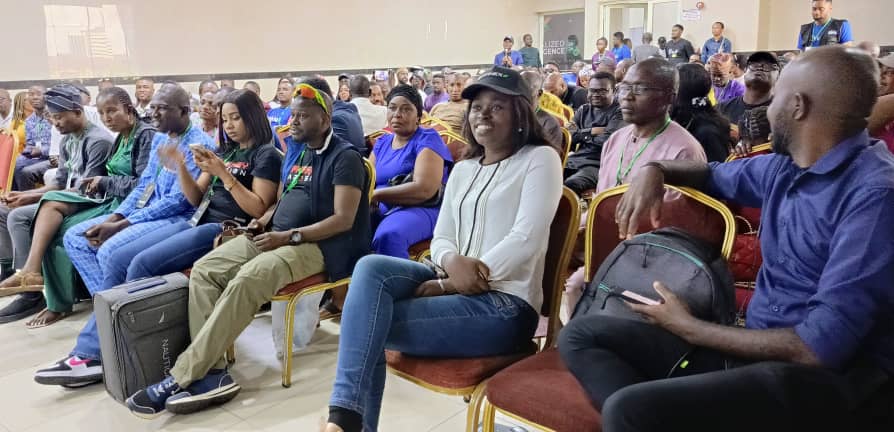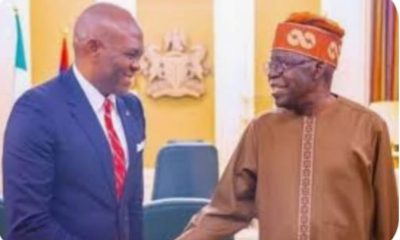Business
Day Two of Decentralized Intelligence 2024 V2: A Deep Dive into Blockchain, Web3, and AI
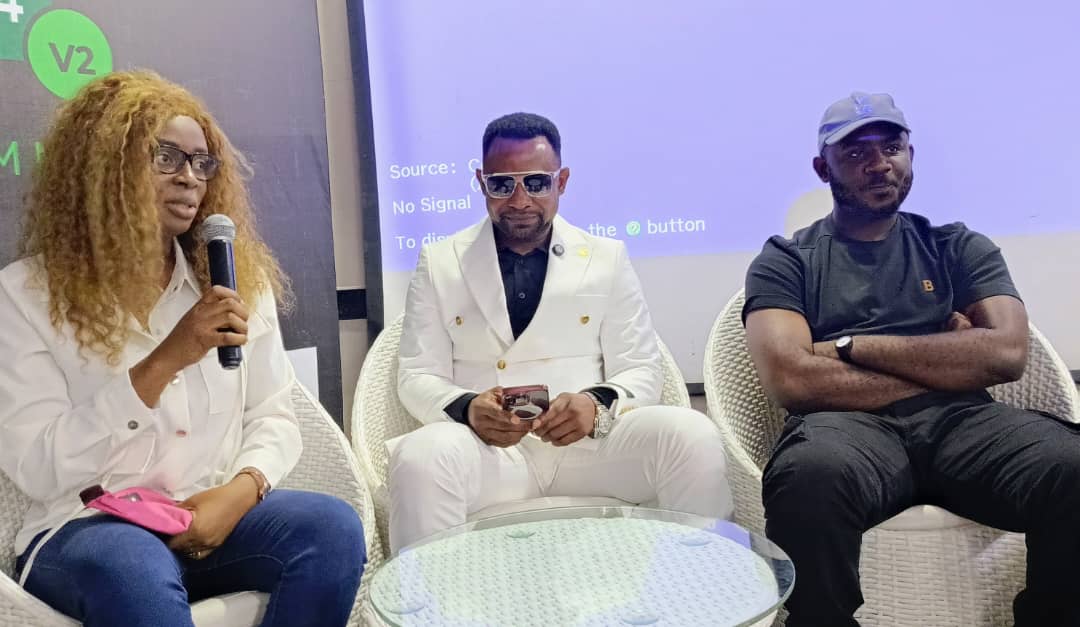
*Day Two of Decentralized Intelligence 2024 V2: A Deep Dive into Blockchain, Web3, and AI
The second and final day of the Decentralized Intelligence 2024 V2, a Blockchain, Web3, and AI Summit, concluded with a workshop at the Civic Center, Victoria Island, Lagos. The two-day event, organized by the Blockchain Nigeria Users Group (BNUG) and sponsored by the Afriq Group of Companies, brought together leading minds in the tech, cryptocurrency, and artificial intelligence sectors.
Day two focused on a series of in-depth workshops that provided delegates with practical knowledge and insights into blockchain technology, cryptocurrency, artificial intelligence, and cybersecurity. Participants had the chance to engage directly with some of the industry’s most respected figures. Among them were Jesam Michael, CEO of Afriq Group of Companies; John Orakwe, an AI specialist; Dr. Paul Chima, a chiropractor with interests in tech and innovation; Ladi Willie, a business journalist at Channels TV; and Chimezie Chuta, Founder of BNUG and Chairman of the Nigeria Blockchain Payment Systems Council (NBPSC).
Each expert contributed to discussions that ranged from the future of blockchain in Africa to the intersection of AI and Web3 technologies. The sessions offered valuable opportunities for attendees to deepen their understanding of the rapidly evolving tech landscape, with a particular focus on the practical applications and implications of these technologies for the Nigerian market.
The Afriq Group of Companies, as the major sponsor, made a lasting impression during the summit. Jesam Michael, CEO of Afriq Group, delivered a thought-provoking speech that resonated with the audience. He began by expressing his appreciation to BNUG for creating a platform that fostered learning and collaboration within the tech community.
“I celebrate ideas,” Jesam Michael remarked, acknowledging the vision and effort behind the summit. “Let’s thank Mr. Chimezie Chuta and his team for putting up this wonderful idea, allowing crypto and tech lovers to come and learn for free. If this event had been organized by a foreign counterpart, this hall would have been overflowing with people because they support each other. Yet here in Nigeria, we find ourselves caught up in internal conflicts, cyberbullying, and character attacks.”
His address highlighted the importance of unity and support within Nigeria’s tech community, emphasizing the potential for growth if individuals could rally behind one another. Jesam Michael also underscored the role of technology in creating positive social impact, saying, “My thoughts are to see you stand tall, helping the less privileged, the widows, the aged men and women, and contributing to the economy of our country.” He reiterated his commitment to supporting initiatives that promote progress and development.
The second day concluded with an atmosphere of optimism and excitement about the future of blockchain, Web3, and AI in Nigeria. Participants left the summit with fresh insights and new connections, poised to apply what they had learned to their respective fields.
Chimezie Chuta, reflecting on the event’s success, thanked all partners, speakers, and participants for their active involvement. He emphasized that the mission of BNUG is to continue to create platforms for knowledge-sharing and collaboration, ensuring that Nigeria remains at the forefront of the digital revolution.
The Decentralized Intelligence 2024 V2 Summit not only showcased the depth of talent and expertise within the Nigerian tech community but also underscored the importance of fostering collaboration for the growth of blockchain and AI technologies. The Afriq Group of Companies’ involvement, especially, served as a testament to the power of strategic partnerships in driving the country’s digital transformation forward.
Business
Nigeria’s Inflation Drops to 15.10% as NBS Reports Deflationary Trend

Nigeria’s headline inflation rate declined to 15.10 per cent in January 2026, marking a significant drop from 27.61 per cent recorded in January 2025, according to the latest Consumer Price Index (CPI) report released by the National Bureau of Statistics.
The report also showed that month-on-month inflation recorded a deflationary trend of –2.88 per cent, representing a 3.42 percentage-point decrease compared to December 2025. Analysts say the development signals easing price pressures across key sectors of the economy.
Food inflation stood at 8.89 per cent year-on-year, down from 29.63 per cent in January 2025. On a month-on-month basis, food prices declined by 6.02 per cent, reflecting lower costs in several staple commodities.
The data suggests a sustained downward trajectory in inflation over the past 12 months, pointing to improving macroeconomic stability.
The administration of President Bola Ahmed Tinubu has consistently attributed recent economic adjustments to ongoing fiscal and monetary reforms aimed at stabilising prices, boosting agricultural output, and strengthening domestic supply chains.
Economic analysts note that while the latest figures indicate progress, sustaining the downward trend will depend on continued policy discipline, exchange rate stability, and improvements in food production and distribution.
The January report provides one of the clearest indications yet that inflationary pressures, which surged in early 2025, may be moderating.
Bank
Alpha Morgan to Host 19th Economic Review Webinar

Alpha Morgan to Host 19th Economic Review Webinar
In an economy shaped by constant shifts, the edge often belongs to those with the right information.
On Wednesday, February 25, 2026, Alpha Morgan Bank will host the 19th edition of its Economic Review Webinar, a high-level thought leadership session designed to equip businesses, investors, and individuals with timely financial and economic insight.
The session, which will hold live on Zoom at 10:00am WAT and will feature economist Bismarck Rewane, who will examine the key signals influencing Nigeria’s economic direction in 2026, including policy trends, market movements, and global developments shaping the local landscape.
With a consistent track record of delivering clarity in uncertain times, the Alpha Morgan Economic Review continues to provide practical context for decision-making in a dynamic environment.
Registration for the 19th Alpha Morgan Economic Review is free and can be completed via https://bit.ly/registeramerseries19
It is a bi-monthly platform that is open to the public and is held virtually.
Visit www.alphamorganbank to know more.
Business
GTBank Launches Quick Airtime Loan at 2.95%

GTBank Launches Quick Airtime Loan at 2.95%
Guaranty Trust Bank Ltd (GTBank), the flagship banking franchise of GTCO Plc, Africa’s leading financial services group, today announced the launch of Quick Airtime Loan, an innovative digital solution that gives customers instant access to airtime when they run out of call credit and have limited funds in their bank accounts, ensuring customers can stay connected when it matters most.
In today’s always-on world, running out of airtime is more than a minor inconvenience. It can mean missed opportunities, disrupted plans, and lost connections, often at the very moment when funds are tight, and options are limited. Quick Airtime Loan was created to solve this problem, offering customers instant access to airtime on credit, directly from their bank. With Quick Airtime Loan, eligible GTBank customers can access from ₦100 and up to ₦10,000 by dialing *737*90#. Available across all major mobile networks in Nigeria, the service will soon expand to include data loans, further strengthening its proposition as a reliable on-demand platform.
For years, the airtime credit market has been dominated by Telcos, where charges for this service are at 15%. GTBank is now changing the narrative by offering a customer-centric, bank-led digital alternative priced at 2.95%. Built on transparency, convenience and affordability, Quick Airtime Loan has the potential to broaden access to airtime, deliver meaningful cost savings for millions of Nigerians, and redefine how financial services show up in everyday life, not just in banking moments.
Commenting on the product launch, Miriam Olusanya, Managing Director of Guaranty Trust Bank Ltd, said: “Quick Airtime Loan reflects GTBank’s continued focus on delivering digital solutions that are relevant, accessible, and built around real customer needs. The solution underscores the power of a connected financial ecosystem, combining GTBank’s digital reach and lending expertise with the capabilities of HabariPay to deliver a smooth, end-to-end experience. By leveraging unique strengths across the Group, we are able to accelerate innovation, strengthen execution, and deliver a more integrated customer experience across all our service channels.”
Importantly, Quick Airtime Loan highlights GTCO’s evolution as a fully diversified financial services group. Leveraging HabariPay’s Squad, the solution reinforces the Group’s ecosystem proposition by bringing together banking, payment technology, and digital channels to deliver intuitive, one-stop experiences for customers.
With this new product launch, Guaranty Trust Bank is extending its legacy of pioneering digital-first solutions that have redefined customer access to financial services across the industry, building on the proven strength of its widely adopted QuickCredit offering and the convenience of the Bank’s iconic *737# USSD Banking platform.
About Guaranty Trust Bank
Guaranty Trust Bank (GTBank) is the flagship banking franchise of GTCO Plc, a leading financial services group with a strong presence across Africa and the United Kingdom. The Bank is widely recognized for its leadership in digital banking, customer experience, and innovative financial solutions that deliver value to individuals, businesses, and communities.
About HabariPay
HabariPay is the payments fintech subsidiary of GTCO Plc, focused on enabling fast, secure, and accessible digital payments for individuals and businesses. By integrating payments and digital technology, HabariPay supports innovative services that make everyday financial interactions simpler and more seamless.
Enquiries:
GTCO
Group Corporate Communication
[email protected]
+234-1-2715227
www.gtcoplc.com
-

 celebrity radar - gossips6 months ago
celebrity radar - gossips6 months agoWhy Babangida’s Hilltop Home Became Nigeria’s Political “Mecca”
-

 society6 months ago
society6 months agoPower is a Loan, Not a Possession: The Sacred Duty of Planting People
-

 society5 months ago
society5 months agoReligion: Africa’s Oldest Weapon of Enslavement and the Forgotten Truth
-

 news6 months ago
news6 months agoTHE APPOINTMENT OF WASIU AYINDE BY THE FEDERAL GOVERNMENT AS AN AMBASSADOR SOUNDS EMBARRASSING

